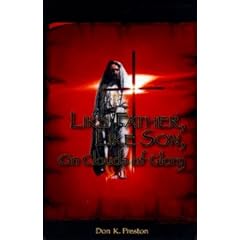
The Study of the Time and Nature of Christ's Second Coming: The nature of Christ's return is being hotly debated, at last. Did Christ predict a return in a literal fleshly body, as most modern believers suggest? Or was Christ's coming to be an event in which He would come in the same way His Father had come, many times, in the Old Covenant? The latter is the clearly stated truth, yet, this essential truth is greatly ignored by most Bible students. The preterist view of prophecy is growing rapidly, across all denominational boundaries. The Gordian Knot problem of the New testament time statements of the nearness of the end is unraveling in light of a better understanding of the nature of Christ's parousia (presence). In short, Jesus did not promise to come back in a physical body! He promised to come as the Father had come, and that precludes a visible, bodily coming! But, this convincing explanation is not welcome by all, and preterism is being labeled as heretical. undaunted by such charges, Don K. Preston candidly confronts the leading critics of preterism today, responding in-depth to the writings of John MacArthur, Kenneth Gentry and others, showing that their paradigm is false, and that their accusations are misguided. In this comprehensive and definitive work, Don K. preston shows with powerful, persuasive evidence, that Christ's second coming was not to be a bodily, physical, visible return; but a manifestation of His Sovereignty as He came, In the Glory of the Father!
http://www.amazon.com/dp/0938855271/?tag=baptis04-20

